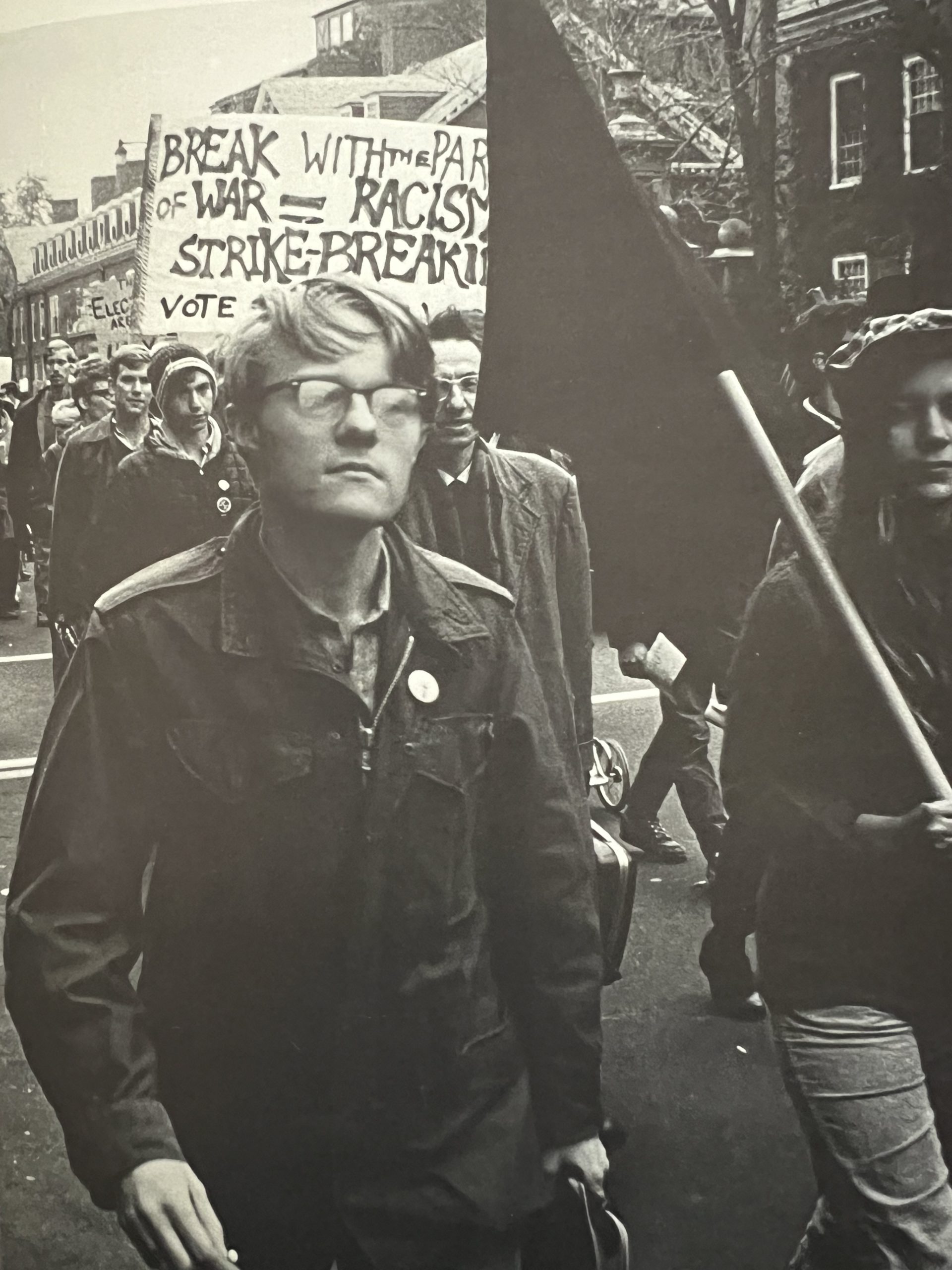
We must have made an iconic picture—three small children huddled around the flickering machine, rapt with the novelty of television. Yes, reception was sketchy, but sometimes my sisters and I would stare for far too long at the static snow or at the station signal, anticipating the moment programming would restart with cartoons or the Mickey Mouse Club.
We managed to see our share of the Saturday kids’ programs, endless varieties of Westerns, the stereotypical Ozzie and Harriet sitcoms, variety shows and increasingly, the news.
Despite interruptions for travel, we managed to see our share of the Saturday kids’ programs, endless varieties of Westerns, the stereotypical Ozzie and Harriet sitcoms, variety shows and increasingly, the news.
The three major networks all had evening news hours. My parents had revered Edward R. Murrow on radio, and they now favored Walter Cronkite, Chet Huntley and David Brinkley, and Meet the Press on Sunday. I often watched with them. Growing up in the aftermath of World War 2, broadcast information seemed important, and it now came with a visual punch. Needless to say, there was no cable, no algorithm streaming blogs and curating flashes on various devices. Everyone watched the networks.
Television played a large role in the creation of “The Sixties”. It showed the horror of the Kennedy assassination, and later that of his brother. It brought scenes of civil rights protests, people being spat at, screamed at, beaten up, fire hoses and dogs sicced on them. When Martin Luther King was killed, we saw Washington DC, Baltimore and Chicago in flames. As the US stumbled into the Vietnam War, people started to see that war in real time, and it was shocking. Shocking to see the wounded and the dead, the children burning with napalm, the Buddhist monk aflame. It was excruciating for the young men drafted to fight, and for their family and friends watching it on television at home.
In 1968, in the heat of the widespread antiwar and civil rights movements, the Democratic Convention in Chicago drew protestors who were then brutally beaten in a “police riot”. The press covered the melee, and as the protestors were being clubbed and carried away, they chanted “the whole world is watching, the whole world is watching!” And it was. I was.
When I entered college that same year, the campuses exploded with political fervor, and it was impossible to ignore. The television images had helped inspire us to action, and our lives changed.



TV was definitely a great ‘sitter’.
Still is. Actually we weren’t allowed to watch huge amounts and had some big gaps with no TV, so probably lucked out. Today it is all devices that stupify.
Thanx Khati for your seamlessly written story and the video-track of all our lives coming of age in those turbulent times.
You’d think it would have prepared us for more to come., but it never does . Hope springs eternal, and maybe that’s good.
Sometimes hard to keep that hope in mind but fortunately there are young people and the world begins anew in spite of it all.
Great observations about TV throughout our youth, Khati. And as I was one of those kids in Chicago for the ’68 convention, I remember all too well chanting “the whole world is watching,” and hoping it was true!
I remember you said you were there and I was thinking of you when I wrote this piece. People were indeed watching.
Thanks, Khati, for reminding us of the role television played as a catalyst for activism in the 1960s and — in several other ways — beyond that era.
Definitely influenced the times, including activism. Media continues to be important although the forms have changed—and as you well know, not necessarily for the better.
An excellent reminder of how television news that was so different from what we get now impacted our lives. Back then, TV was a shared experience.
Sometimes it is hard to remember how much things have changed—although I haven’t entirely gotten on the new communications platforms and don’t want to. But it does make a difference when there is a free and local press along with shared experiences—one of the first targets of tyranny.